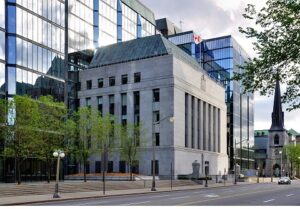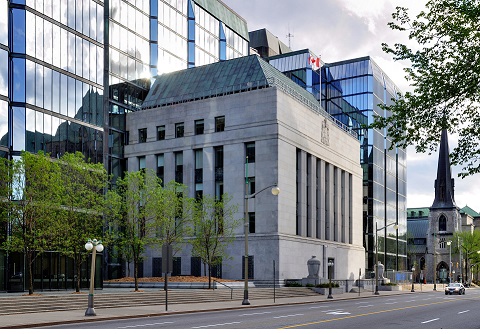Bank of Canada raises the interest rate again: +0.75%

OTTAWA – Here we go again. The Bank of Canada will raise its benchmark interest rate by 0.75% on Wednesday: a new increase, therefore, after the 0.50% increase on June 1, when the rate was raised to 1.50. %. From Wednesday, it will be at 2.25%. The reason, as always, is that of the “fight against inflation” which in recent weeks has reached its highest level in almost 40 years: 7.7 per cent.
“With the economy essentially at full employment, wages starting to move significantly and headline inflation poised to test 8% in this month’s CPI report, the Bank of Canada’s task it’s a clear week”, BMO chief economist Douglas Porter wrote in a weekly report on Friday. Maybe, but the only sure thing is that mortgage payments will increase for Canadian families.
According to a report released last week by the Canada Mortgage and Housing Corporation (CMHC), more than half of all mortgages entered into in the second half of 2021 are in fact variable rate mortgages, an anomaly not seen in the past decade in a Country where people tend to strongly prefer fixed rates. Driven by strong discounts on variable rates, this trend also continued for the first two months of 2022, with over 55 per cent of mortgages stipulated at variable rates. Additionally, mortgage growth over the past twelve months has risen to a level not seen since 2008, according to CMHC.
“So when we look to 2021, and even the start of 2022, mortgage debt has not only increased, it has actually accelerated. We are talking about an almost 10% increase in mortgage debt over the previous year”, senior CMHC economist Tania Bourassa-Ochoa told CP24 in an interview. “Canadians have high levels of debt, and this is something we are monitoring very closely. Obviously, it is a potential source of vulnerability for the housing system. So definitely something we are following very closely”.
Bourassa-Ochoa further said that the mortgages that have been taken out are heavier as people have had to spend more to keep up with rising house prices. “In the context of the rapid rise in interest rates, there will inevitably be a lot of pressure on some households and particularly on those that are most heavily indebted”, Bourassa-Ochoa said.
RBC, one of the largest mortgage lenders in the country, predicts a mild recession for 2023, along with a 10% drop in house prices over the next year.
Meanwhile, the Toronto Regional Real Estate Board has already made it known that June sales fell 41% compared to the same month a year ago: indicating that rising rates and uncertainty about the economy could further cool the market of real estate. After all, who buys with rising rates?
In the pic: Bank of Canada, Ottawa (from https://commons.wikimedia.org)



